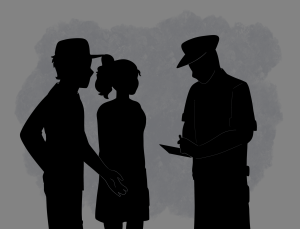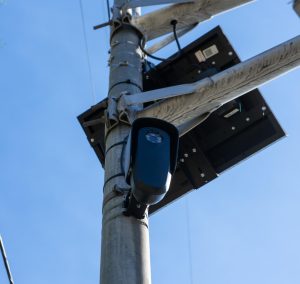Revising Our Sordid Pasts
November 9, 2017
In this age of alternative facts and Russian-sponsored fake news, it behooves us to remember Spanish poet and philosopher George Santayana’s words of wisdom – “those who cannot remember the past are condemned to repeat it”. In remembering the past, we make use of objective historical facts, drawing on such facts in order to shape our worldview. But when we engage in historical negationism (an illegitimate, non-academic type of historical revisionism done to suit a particular agenda), earnest attempts to understand and consider history are utterly stymied. Santayana is right on the mark in noting that failing to remember the past has consequences. Deliberate misremembering of the past in the form of historical negationism is similarly harmful; efforts to obscure clear historical data are harmful and all too common.
Trump administration Chief of Staff John Kelly – supposedly a moderate voice of reason in the chaotic and extremist White House – recently declared that the American Civil War was caused by the failure of North and South to compromise on certain unspecified issues. Kelly is not alone in this view. Republican Texas lawmakers in 2015 whitewashed teaching standards for American history by deciding to treat slavery as a secondary issue and inserting the myth that states’ rights were the central cause of the Civil War. Many also romanticize the “lost cause,” attempting to find nobility of purpose in the fight to preserve slavery where none exists.
These are the manifestations of harmful revisionist thought; slavery (and the institutionalized racism it represented) was indisputably the primary cause of the Civil War. Such willingness to politicize and alter the historical record is abhorrent and begs the tough question: how can we possibly be well equipped to confront history’s nuanced and multifaceted present-day legacy if we manage to find points of disagreement on objective historical facts?
Historical negationism and failure to acknowledge historical reality is not a singularly American phenomenon. Globally, holocaust denialism is shockingly prevalent, Turkey flatly denies that the Armenian genocide ever took place, and Japan’s education system fails to include mention of war crimes the nation committed in World War II. While it is easy to take comfort in the idea that the world has changed for the better and such historical atrocities are things of the past, it is profoundly troubling that global remembrance of the past is so clouded by political rhetoric. It brings to mind a sort of Orwellian social order where propaganda without any remote grounding in historical fact is liberally employed in order to keep citizens loyal and docile. While the US, Turkey, and Japan are certainly not similar to the totalitarian state of Oceania Orwell describeds in 1984, there is certainly common ground in the fact that state-sponsored falsifying of history is never done for the citizens’ benefit.
In the end, understanding history holistically is of paramount importance. For all the glorious human innovations and brilliant ideas seen throughout history, there are also moments of senseless violence and brutal destruction that cannot possibly be justified. Denying the events we find painful doesn’t change the fact that they happened. Our present-day political systems and experiences are built on historical events; in order to effectively move into the future, we must understand history in its entirety – the good, the bad, and the ugly included.






